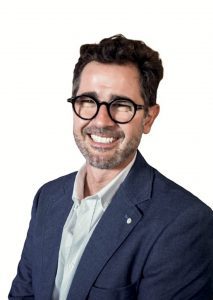Challenges of Sustainability in the Mediterranean Lifestyle

Greetings to all lovers of sustainable architecture! I’m Daniel Sánchez Mesa, a Certified architect at Passive House and partner at PuebloRico. Today I want to delve into an exciting problem that arises in the Mediterranean regions, such as Spain, Italy and Lebanon, where the lifestyle of these societies is characterized by spending a lot of time outdoors and enjoying the sun. The question that arises is: how can we integrate the concept of Passive House in these communities where life on the terrace is a deep-rooted tradition?
The Mediterranean Lifestyle and Outdoor Life
In the Mediterranean, living outdoors is a fundamental part of culture. The shade of a terrace, the freshness of an awning and the sea breeze are essential for everyday life. Most of us enjoy spending time outdoors, from family meals to relaxing on a terrace with friends, which poses an interesting challenge when we talk about highly efficient and sealed houses like passive houses.
The Difficulty of the Hermetic House
The concept of Passive House is based on exceptional airtightness and insulation, which is essential to achieve unprecedented energy efficiency. However, in the Mediterranean, where life abroad is an essential component of the lifestyle, the idea of living in an enclosed space as if it were a “tupperware” can seem complicated and restrictive. The Mediterranean community values natural light, fresh air and connection with the outdoor environment, which may seem contradictory to the characteristics of a Passive House.
La Búsqueda de un Equilibrio Sostenible
La pregunta que nos planteamos como arquitectos certificados en Passive House es: ¿cómo podemos encontrar un equilibrio entre la eficiencia energética y la vida al aire libre que tanto apreciamos en el Mediterráneo? Una posible solución es la integración de diseños arquitectónicos que permitan la apertura de la vivienda hacia el exterior, de manera que se puedan disfrutar de terrazas y jardines mientras se mantiene la eficiencia energética. Esto implica un enfoque cuidadoso en la orientación de las viviendas, el diseño de sombreado y la elección de materiales adecuados.
The Energy Problem
However, the issue of energy continues to be a challenge in these regions. Despite design solutions, energy can still be expensive in some places, which leads us to question whether we are still slaves and dependent on energy producers, both for the production of building materials and for everyday life. Sustainability must go hand in hand with energy policies that make sustainable energy accessible to all, so that the benefits of living in a Passive House are available to the majority.
My Vision
In the Mediterranean, we enjoy an outdoor lifestyle that is part of our cultural identity. Integrating energy efficiency in this context can be a challenge, but it is also an opportunity to rethink how we live and build in harmony with the environment. Sustainability does not have to mean sacrificing the enjoyment of the outside; rather, it must be an approach that allows us to live consciously and responsibly. If you have any questions or are interested in exploring more about how to adapt Passive Houses to the Mediterranean lifestyle, do not hesitate to contact me. I’m here to help you find sustainable solutions that adapt to our traditions and needs.
See you next time!

DANIEL SANCHEZ MESA
Partner – Architect
(+34) 615 693 312
(+34) 952 130 841
Centro Comercial Guadalmina IV, Local 92, primera planta.
29670, Guadalmina Alta, Marbella.



